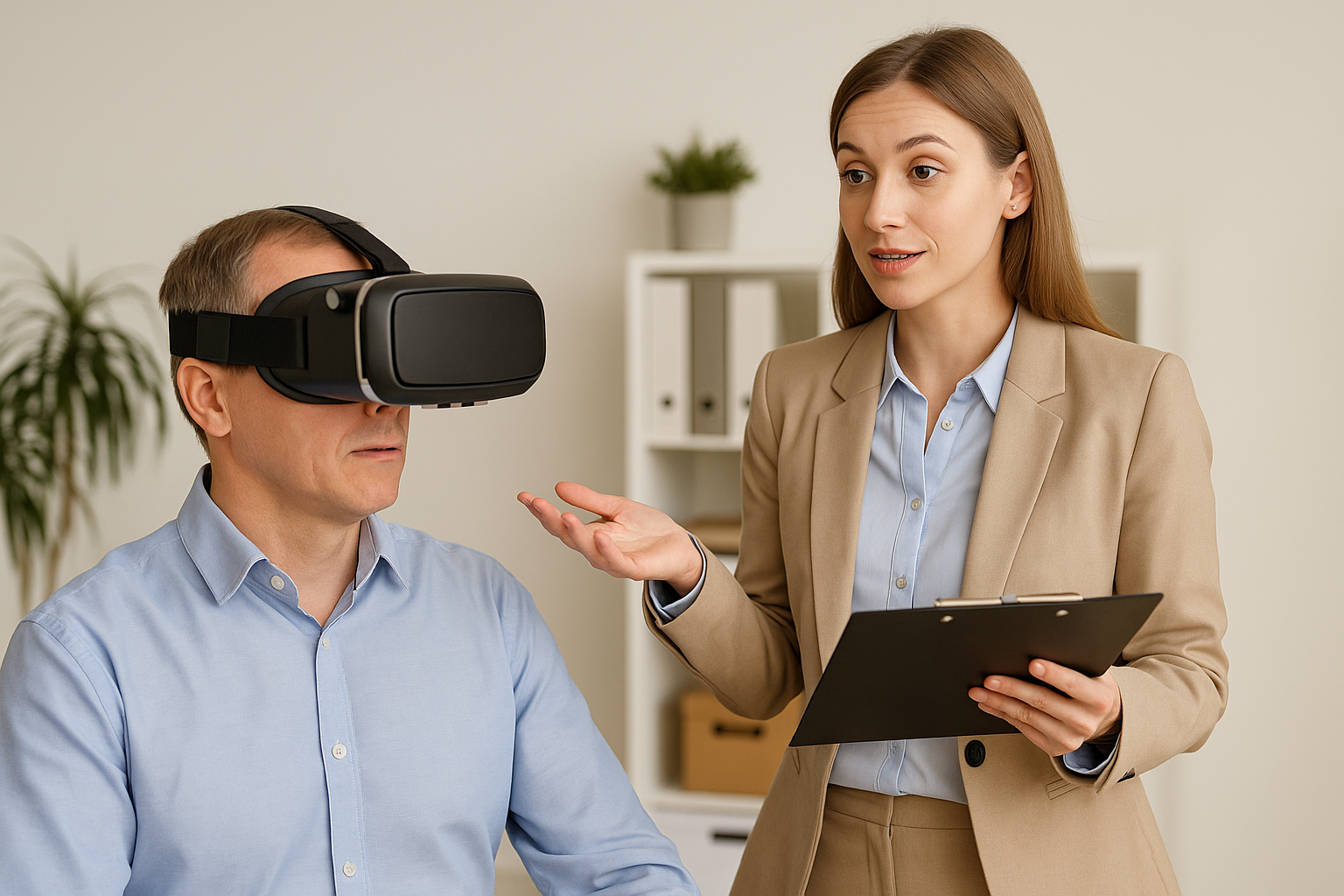
עם ניסיון של למעלה מעשור בפיתוח טכנולוגיות מציאות מדומה ובליווי טיפולי אישי, אנו מציעים מערך שלם של טיפולים חדשניים, כולל:
אילו טיפולים תמצאו אצלנו?
🧠 טיפול בחרדות ודיכאון באמצעות VR
באמצעות סביבות מדומות מבוקרות, המטופל לומד להתמודד עם מקורות הפחד בצורה חווייתית, תומכת ולא מאיימת.
🎓 טיפול קוגניטיבי-התנהגותי (CBT) מבוסס מציאות מדומה
שילוב בין גישה טיפולית מוכחת וטכנולוגיה מתקדמת – לפריצת דרך בהתמודדות עם דפוסי מחשבה שליליים.
🛫 טיפול בפוביות ייחודיות
פחד מטיסות? מעליות? כלבים? באמצעות סצנות מדומות אנו מאפשרים חשיפה הדרגתית וטיפול ממוקד ללא סיכון.
🧒 טיפול בילדים ונוער עם בעיות רגשיות
משקפי מציאות מדומה הופכים את הטיפול לנגיש, מעניין וחווייתי במיוחד עבור ילדים עם בעיות קשב, חרדה חברתית או אוטיזם.
👥 טיפול זוגי ודינמיקה קבוצתית במציאות מדומה
להבין, להרגיש ולהגיב – באימון זוגי וקבוצתי בתוך מצבים מדומים שנראים אמיתיים.
למה דווקא קיסר מציאות מדומה?
✔️ הטכנולוגיה המתקדמת ביותר בישראל
✔️ ניסיון מקצועי בטיפול, בפיתוח ובשילוב בין פסיכולוגיה לטכנולוגיה
✔️ סביבות טיפוליות בהתאמה אישית לכל מטופל
✔️ נגישות בכל הארץ – גם אונליין!


